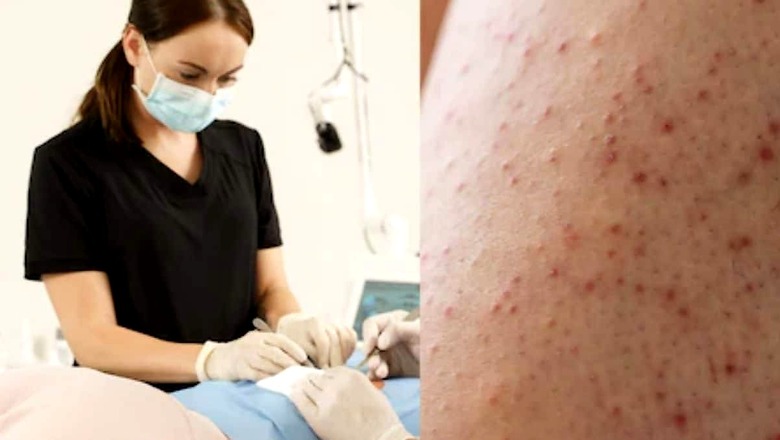
views
Keratosis pilaris is a benign disorder which is characterised by the numerous tiny, rough, red or pink blotches on the upper arms, claves, buttocks and occasionally the face. While the appearance of these red rashes can distressing, Dr Amy Freeman, a dermatologist in Millburn, New Jersey said that these are harmless and often go away on their own. However, some people can deal with these flare-ups for their entire lives. According to a report by the New York Times, an estimated 40 per cent of adults and 50-80 per cent of teenagers suffer through Keratosis pilaris.
The dermatologists have not been able to specify the exact reason for the occurrence of this condition which is also known as chicken skin. Many health experts believe the decomposition of Keratin protein and dead cells in the hair follicles leads to hair blockages, giving birth to small red bumps. Keratin is the protein which is involved in the formation of hair, nails and skin.
Another theory states keratosis pilaris skin condition can be caused by a genetic mutation, as quoted in the report of the New York Times. It is believed that people who have dry skin are more at risk of this problem. People with a family history of eczema, diabetes and keratosis pilaris are at greater risk. According to the American Academy of Dermatology, people with asthma, allergies and overweight can also become its victims.
Preventing dry skin is one of the best ways to reduce flare-ups and generally improve the appearance of keratosis pilaris. Products that contain emollients and keratolytics are the most effective, said Dr Amy Freeman. By using moisturising lotions containing keratolytic agents, people can get relief from this skin condition to a great extent, added the dermatologist.
You can also consult a dermatologist and get medicine to eliminate this problem. However, there is no known cure for this disease. People who get it can control it through proper treatment. If you have this problem, then protect the skin from becoming dry and use a moisturising lotion. It is also advised to avoid anything that might irritate your skin such as scrubs, scratching or picking at the bumps.


















Comments
0 comment